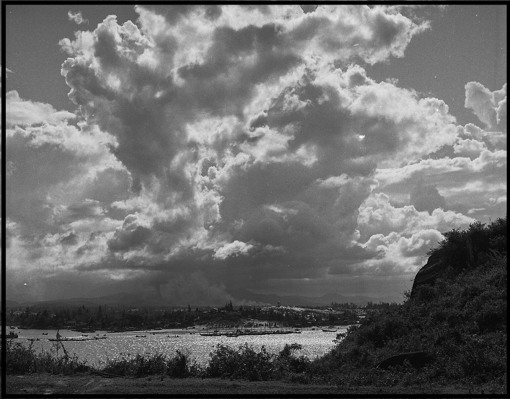The Book:
SEABEE71
IN CHU LAI
A 350 page memoir of a Navy Journalist's 14 months with the Seabees.

Photographs and text copyright © 1967 and 2019 by David H. Lyman

Cumulonimbus clouds had been building all day. The hot summer sun had sucked up warm ocean water out of the South China Sea, forming towering thunder heads, now drifting westward over land. As the clouds rose over the mountains, the fireworks began. Lightening flashed within and between the clouds. Some of those mountainous clouds rose to 50,000 feet, ten miles up. In the afternoon you’d see them billowing out over the ocean, change shape before your eyes, growing. Now, at night, as the lightning flashed within the clouds, the flashes silhouetted the mountains and valleys within the clouds. The sky looked like the Swiss Alps.
Wally Skop and I were sitting on the steps of my office hooch one night in late September. It was around 11 p.m. The EM Club had closed, but we were not ready to turn in. I had only a few more weeks in ‘Nam, and was savoring, (if I can use that word here) the last few moments we would have in this tropical hell-hole.
We sat and watched the light shows—two of them. One, off to our right, in the hills to the west of the base, orange magnum flares floated down on small parachutes, the boom of out-going 109s, the flashes of explosions could be seen on the hillside, followed a minute later by the distant rumble of shelling and the staccato chatter of a machine gun from some bunker on the perimeter. There was a war going on over there.
The another light show that held our attention—was the lightening in the clouds, 30 miles to the south, over the city of Quang Ngai.
“Makes our little war seen so trivial,” Wally added. “You could write about that,” he observed.
“Yes, I suppose I could. Watching all that energy, it could be a poem.” We’d both turned reflective.

